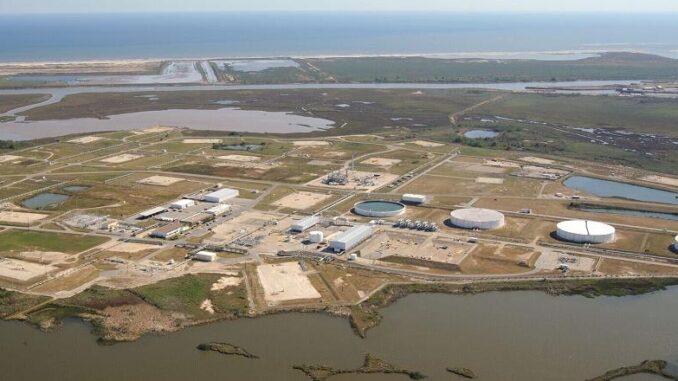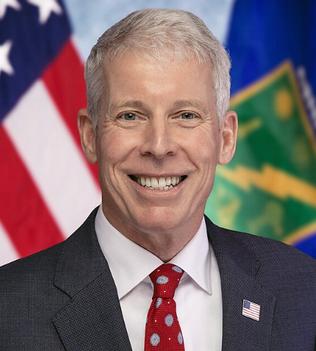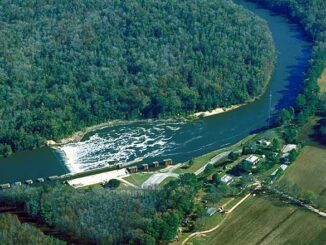
WASHINGTON, DC, May 12, 2025 (ENS) – The U.S. Department of Energy is undertaking what the Trump administration calls the “largest deregulatory effort in history.” The agency is proposing the elimination or reduction of 47 regulations that it claims are driving up costs and lowering quality of life for the American people.
Back in March, President Trump’s Environmental Protection Agency announced “31 historic actions in the greatest and most consequential day of deregulation in U.S. history.” Today the Department of Energy sprinted past the EPA in the race to deregulation – announcing 47 individual actions.
“While it would normally take years for the Department of Energy to remove just a handful of regulations, the Trump Administration assembled a team working around the clock to reduce costs and deliver results for the American people in just over 110 days,” said Secretary of Energy Chris Wright.

“Thanks to President Trump’s leadership, we are bringing back common sense – slashing regulations meant to appease Green New Deal fantasies, restrict consumer choice and increase costs for the American people,” Wright said. “Promises made, promises kept.”
Once finalized, these actions are expected to save the federal government an estimated $11 billion. In line with President Donald Trump’s Executive Order, “Zero-Based Regulation to Unleash American Energy,” these deregulations “restore consumer freedom, lower costs, and unleash American energy dominance,” the administration claims.
The 47 actions include the proposed elimination or modification to dozens of consumer appliance standards, regulations limiting building and energy production and unscientific DEI requirements for grant recipients. The full list of actions is available below:
Department of Energy deregulatory actions remove conservation or efficiency standards for dozens of products including: dishwashers, clothing washers, commercial ice makers, microwave ovens, water faucets, dehumidifiers, cooktop stoves, ovens, battery chargers, air conditioners, fans, blowers, showerheads, portable electric spas, small electric motors, commercial warm air furnaces, and external power supplies.
In addition, today’s deregulatory acts include:
- Rescinding Unnecessary ADR Regulations for DOE Contractor Employee Protection Program. These are technical and administrative requirements that must be met to transport dangerous goods safely. They cover the classification of dangerous goods, packaging, labeling, documentation, training and transport safety.
- Streamlining the Procedures for Acquisition of Petroleum for the Strategic Petroleum Reserve. In his second inaugural address, President Donald Trump said he would fill the strategic oil reserve “right to the top.” Replenishing with U.S. crude oil would cost more than $24 billion, the Energy Dept. says. Republicans have introduced a Budget Reconciliation Bill in the House, which will include funding to begin refilling the Strategic Petroleum Reserve. The bill proposes $1.321 billion to purchase petroleum products for storage in the Reserve, and another $218 million for maintenance and repairs to storage facilities.
- Rescinding the Renewable Energy Production Incentive and also the Production Incentives for Cellulosic Biofuels. These are fuels made from plant materials not eaten by humans: agricultural residues such as wheat straw, energy crops such as switchgrass, and wood waste.
- Rescinding Reporting Requirements, Certification, Independent Verification, and DOE Review for Voluntary Greenhouse Gas Reporting
- Delaying Compliance Date for Federal Agencies to Meet the Clean Energy Federal Building Rule
- Streamlining Administrative Procedures on the Import and Export of Natural Gas
- Streamlining Application for a Presidential Permit Authorizing the Construction, Connection, Operation, and Maintenance of Facilities for Transmission of Electric Energy at International Boundaries
- Streamlining Applications for Authorization to Transmit Electric Energy to a Foreign Country
- Rescinding Collection of Information Under the Energy Supply and Environmental Coordination Act of 1974
- Rescinding Regulations for Loans for Minority Business Enterprises Seeking DOE Contracts and Assistance
- Rescinding New Construction Requirements Related to Nondiscrimination in Federally Assisted Programs or Activities
- Rescinding the Grant Programs for Schools and Hospitals and Buildings Owned by Units of Local Government and Public Care Institutions
- Rescinding Floodplains and Wetlands Environmental Review Requirements
- Ending Requirements for members of one sex to try out for sports teams of the opposite sex
- Three nondiscrimination regulations regarding sex, age and disability were rescinded as related to federally funded programs or activities.
- Rescinding Unnecessary Regulation Encouraging Alternative Dispute Resolution
Featured image: One of two federal Strategic Petroleum Reserve sites in Texas, the Bryan Mound site, like the other, Big Hill, near Beaumont, and the other two in Louisiana, Bryan Mound is a subterranean salt dome excavated to hold part of the 700 million barrels of oil held by the Strategic Petroleum Reserve for use in national emergencies. Bryan Mound has 20 underground chambers capable of holding a total of 226 million barrels at the site. (Photo courtesy The Center for Land Use Interpretation)
© 2025, Environment News Service. All rights reserved. Content may be quoted only with proper attribution and a direct link to the original article. Full reproduction is prohibited.



